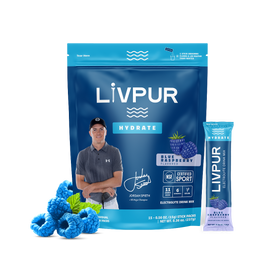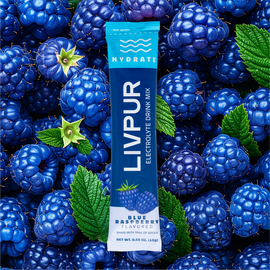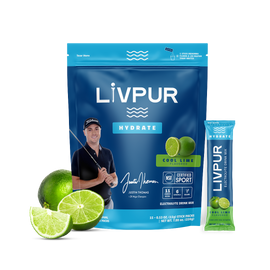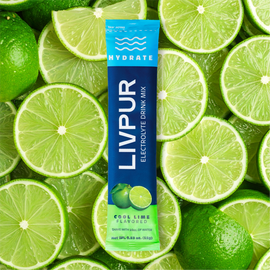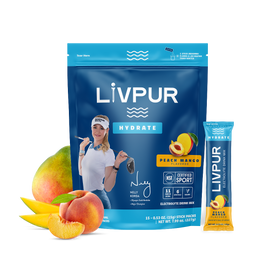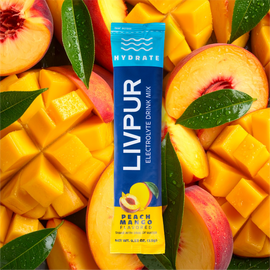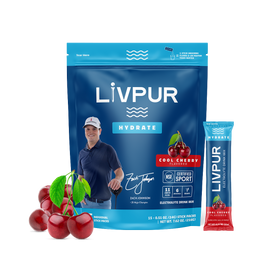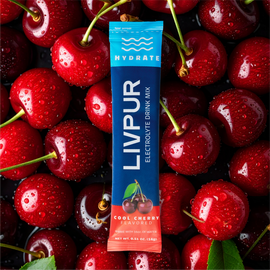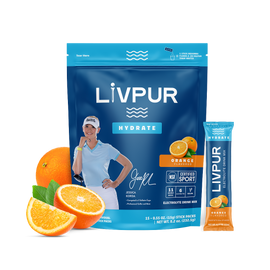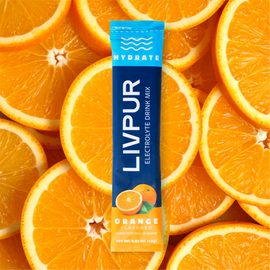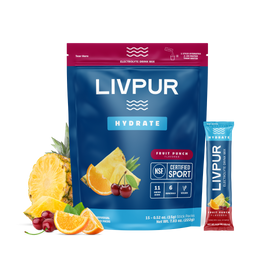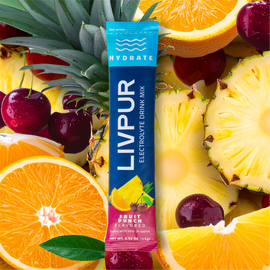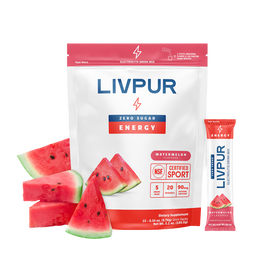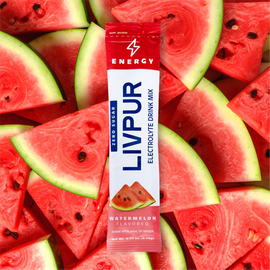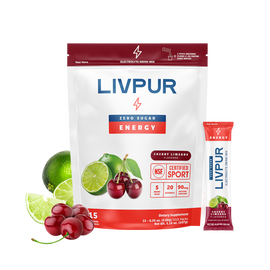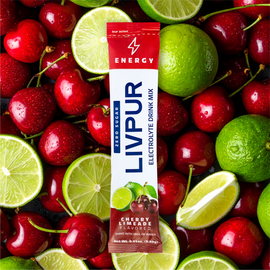June 01, 2025 • By Katie Switow • Blog
Top Hydration Tips For Athletes To Enhance Performance And Recovery
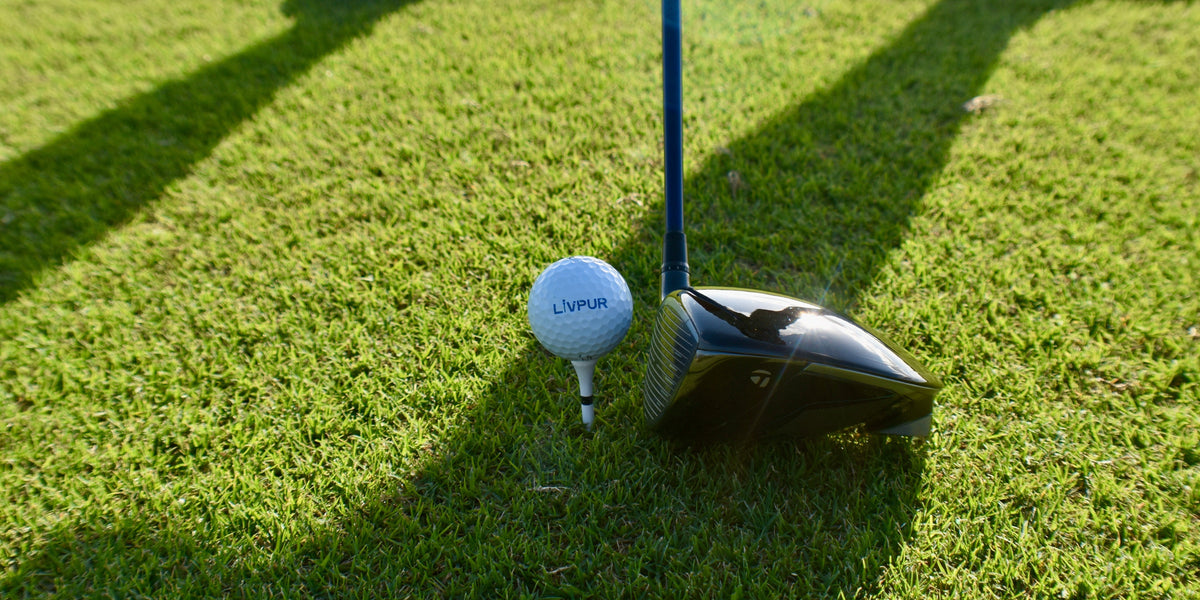
If you've been an athlete for more than a few seasons, you probably know that sports drinks alone are not nearly enough to maintain proper hydration when you are exercising and sweating throughout the day. In fact, fluid intake is only part of what's required to maintain hydration. We at LivPur have heard many stories about the impacts of prolonged exercise, and we know how badly fluid loss impacts overall well being. For these reasons and many more, we wanted to write an article covering the relationship between exercise intensity and hydration needs, while also going through some of our most popular hydration tips for athletes and tips to recover from dehydration at the end. Ready to get started?
Best Hydration Tips For Athletes
Getting enough fluids is something to practice, for the most part, off the field (or track, bike, pool, you name it!) The reason is because it takes time for your body to process fluids and begin re-hydrating your cells. You don't have to skip your morning coffee and replace it with water, you just need to stay hydrated on a regular basis. Wondering how much to drink? Take a look at our first tip!
An athlete's hydration requires a bit more thought than grabbing a water bottle on your way out the door. So, while we discuss the following hydration tips for optimal performance in some general terms, we'll also include specific pointers for those athletes engaged in high performance. These are also good tips to consider if you naturally sweat heavily or consume diuretics like caffeine or alcohol that deplete your body of fluids!
Tip #1: Drink Half An Ounce Of Water For Every Pound Of Bodyweight
The title says it all. In general, for most adults, you should consume half of your bodyweight (in pounds) in ounces of water each day. That means a 200 pound individual should drink 100 ounces of water per day. Some people take diuretic medications which put them at a higher risk for dehydration. In this case, you should consult with a medical professional on your optimal water intake.
Athletes don't have some special guide to follow as it relates to water. They should consume the standard amount of water, half of total bodyweight in ounces. The only special consideration for athletes is to consume extra fluids before and after any high performance activities. The extra fluids helps maintain your already-established fluid balance during periods where you are sweating heavily.
Tip #2: Check Your Hydration Status
Many people monitor their hydration status by simply checking for pale yellow colored urine when they use the bathroom. While it is true that your urine color can be a sign of healthy hydration, we don't recommend athletes relying on this method if they consume any diuretics like caffeine or alcohol. That's because diuretics actually pull water out of your body and increase urination after a period of one to two hours, and the excess water being flushed out of your system can make it seem like you are hydrated.
The Skin Turgor / Pinch Test
We've talked to performance coaches who said it made a significant difference in their clients recovery to start measuring their hydration with the skin turgor, or pinch test. It only takes a few seconds to perform and allows you to easily measure throughout the day!
To perform the test, simply pinch the skin on the back of your hand. If the skin flattens out immediately when you release the pinch, you are properly hydrated. If the skin stays "tented" or folded up, you are likely dehydrated. This puts you at a much greater risk for muscle cramping and injuries if you continue performing physical activity. You should immediately stop consuming any caffeinated beverages, start drinking water, and try to remove yourself from hot conditions that will only worsen the dehydration.
Tip #3: Find Your Ideal Hydration Plan
Most athletes already drink enough water to avoid the major symptoms of dehydration. Still, setting clear hydration practices helps maintain the ideal fluid balance, which can have incredible impacts on performance and recovery.
We've already discussed the general regimen for water, but your hydration plan should include specific and targeted fluids before, during and after high intensity exercise. You don't want to rely on a sports drink loaded full of sugar when your body needs hydration more than ever.
An athlete's hydration plan also considers your diet. Dehydration can actually occur not just because of low fluids, but due to high sodium intake or other electrolyte imbalances. You should eat foods you know will not cause serious elevations in your electrolyte levels on days when peak performance is required, as these elevations can cause dehydration symptoms like cramping.
Tip #4: Adequate Hydration Requirements Are Based On Athletic Performance
If you know you aren't losing much water to sweat loss, for example if you work in a climate-controlled office, your water requirements might be slightly lower. And the opposite is also true. Athletes operating at peak performance have way more fluid lost through sweat, and their adequate fluid consumption rate will be higher on a heavy training day.
In addition to water, it is critical to replenish your electrolytes and amino acids in order to achieve proper hydration. Dehydration occurs when both water AND electrolytes are depleted from your system. You cannot replenish with water alone.
Beyond electrolytes, your body cannot produce the amino acids it needs to refuel your cells. This is why the LivPur Hydrate Formula works so well. The formula is based on sports medicine and comes highly optimized for athletes. It meets all of your hydration requirements with 5 electrolytes and 11 separate amino acids to both boost your sports performance and aid in your recovery. Athletes love it because it provides everything needed for rapid re-hydration without a bunch of added junk.
Tip #5: Competitive Sports And High Endurance Can Quickly Dehydrate
If you are a high-endurance athlete or a player who stays on the field for the entire match time, it is not uncommon to lose a pound of water weight or more during the exercise. Your sweat rate increases dramatically when operating at its peak.
How Much Fluid Do You Need To Offset Losses Through Sweat?
For every pound lost of body weight, experts recommend consuming 16-24 ounces of fluid to replenish. That's why sports jugs are so large; you are losing that much water and need to replenish. Still, we prefer powder formulas that store easily and contain only the key ingredients needed to replenish.
Tip #6: Regulate Your Body Temperature When You Can
Splashing some cool water on your face or taking a moment to rest in the shade can help reduce your overall fluid loss during a sporting event, because high body temperature is what causes sweating in the first place. Lower your temperature to lose less sweat!
Tip #7: Choose Your Sports Drinks Wisely
There are a lot of sports drinks out there which claim they can rapidly rehydrate your body after athletic performance. But, if you read the nutrition label, you'll see they're mostly giving you a sugar rush. Some sports drinks are actually caffeinated beverages that, while giving you a temporary boost, come at the cost of your hydration later in the day.
Look for drinks that are NSF certified for sport, because these drinks do not contain any substances banned by major sports leagues. NSF certified drinks like the Rehydrate Formula by LivPur help maintain fluid balance with confidence.
For more tips on hydration and more, explore our previous blog posts!
